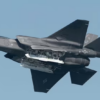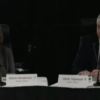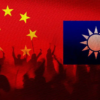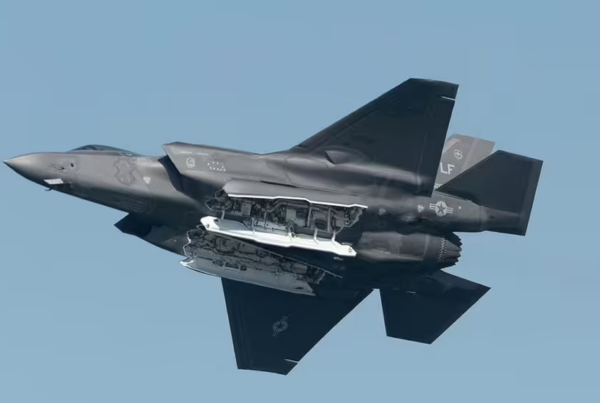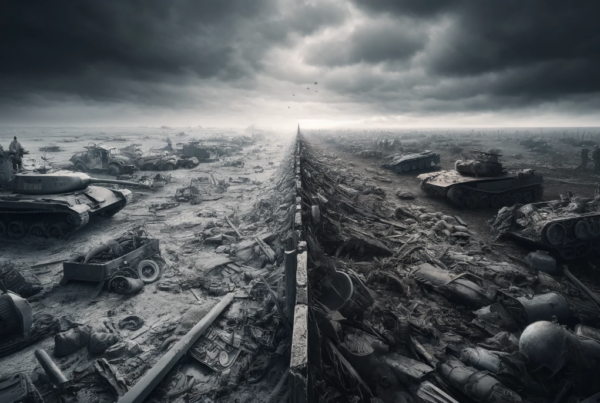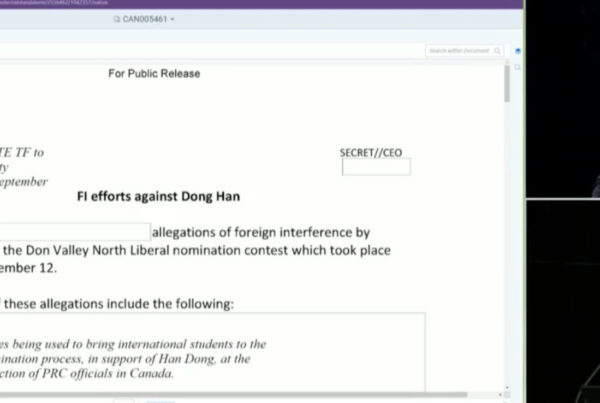North Korea’s endless missile tests and nuclear pursuits have led to the incurrence of repeated sanctions by the United Nation. The United States, along with its allies in the region, is exerting maximum pressure on Kim Jong-un’s regime including heightened military presence. While urging all relevant sides to resolve problems through a diplomatic way, China is stepping up sanctions against Pyongyang in accordance with the UN resolutions. For all these, North Korea has showed no sign of backing off its testing of missiles and nuclear weapons.
A Deep Rift between China and North Korea
Following the UN demands, Beijing announced in February that it would suspend North Korean coal imports until the end of this year. In April, North Korean global coal exports sank to zero, according to UN data.[1] A top trading partner, China accounts for almost 90 per cent of North Korean foreign trade, and North Korean coal, 99.8 per cent of which goes to China, represents 46 per cent of total exports value to China.eijing could halt crude oil exports to North Korea should Pyongyang conduct another nuclear test. As well, China is increasing inspections and policing along the border with North Korea as part of UN sanctions.
Still, China does not want to drive Pyongyang into a corner for geopolitical considerations. North Korean stable exchange rate suggests the country’s economy has not plummeted. With a sweeping embargo on North Korean coal, China’s trade with its former ally still grew 37.4 per cent in the first quarter of 2017 when compared with the same the period of last year, according to Chinese customs figures.[3]
China’s move highlights an urgency for Beijing to use its great economic leverage on North Korea and pressure it into halting its nuclear pursuit that is threatening China’s national interests and security. It comes at a time when China is gearing up for the leadership re-shuffle slated for its upcoming party convention this fall. Beijing will not allow a geopolitical crisis spiral out of control, impacting the country’s quinquennial political event.
A deep rift between China and North Korea has existed for years, particularly since Beijing established formal relations with South Korea in 1992. China has never invited Kim Jong-un to Beijing, nor has the North Korean supreme leader invited his Chinese counterpart to Pyongyang since his taking power in 2011. This acts as a significant thermometer to measure the current bilateral relations, as Kim Jong-un’s father and grandfather visited China numerous times during their lifelong reigns.
With China-North Korea ties sinking to a new low, Beijing still sees it as a buffer zone, at least psychologically. China is deeply concerned about nuclear safety and stability in the peninsula, lest the potential radioactive contamination from North Korea wreak havoc to northeastern China due to its testing sites close to China’s border. Beijing agrees to punish Pyongyang, but fears too harsh sanctions could result in domestic turmoil, driving an influx of refugees to China and bringing in the American-led allied troops to China’s doorstep.
Caught in a geopolitical dilemma, China strongly opposes the deployment of the US Terminal High Altitude Area Defense (THAAD) in South Korea aimed at countering North Korea. Beijing maintains the sophisticated THAAD system threatens its security with the powerful radar to spy into Chinese territory. China retaliated with unofficial sanctions against South Korean businesses. China’s strong opposition underlines its deep skepticism about the US and its allies’ geo-strategy in the region.
In China’s eyes, North Korea’s missile technology does not pose a threat to the continental United States, but the US deployment of a sophisticated system is directly aimed at China’s limited strategic nuclear capability, offsetting China’s minimum nuclear deterrence against the United States and threatening China’s strategic security.[4]
A deep distrust between China and North Korea is reflected in their state-run media. With “the blood-nurtured friendly relations” forged in the 1950-53 war gone, Chinese official media now term the hostilities of nearly 70 years ago “the Korean War” rather than “the War to Resist U.S. Aggression and Aid Korea,” while North Korean media describe China as a country “dancing to the tune of the U.S. while defending its mean behavior.”[5]
Noticeably, Korean Central News Agency (KCNA) has added China to its list of rivals. It slammed Beijing by name instead of a veiled criticism it used before, following China’s additional sanctions and a summit meeting between President Xi Jinping and his American counterpart in early April. The propaganda warfare underscores the gap between the two former allies. It serves as a reminder of China-Soviet ideological debates in the early 1960s that eventually resulted in a decades-long political split between the two communist giants.
In early June the KCNA lashed out at China again for its cooperating with the United States in an attempts to apply pressure against Pyongyang’s nuclear pursuits. The commentary came after China agreed to additional UN embargoes targeting more North Korean entities and officials. It was the second time in a month that North Korea criticized China by name. In a combative commentary on early May, the KCNA warned that, “China had better ponder over the grave consequences to be entailed by its reckless act of chopping down the pillar of” the bilateral relations, adding that “China should no longer try to test the limits of” our patience.[6]
Responding to Pyongyang’s fierce criticism by name, Global Times, a Beijing-based nationalist newspaper, accused North Korea of “grappling with some form of irrational logic over its nuclear program,” warning Beijing “needs to address with Pyongyang its concerns and bottom line. It should also make Pyongyang aware that it will react in unprecedented fashion if Pyongyang conducts another nuclear test.”[7]
Chinese citizens also voicing their frustration and anger with North Korea’s nuclear quest. “Threats of grave consequences have triggered aversion among the Chinese public. Some Net-users say they feel China is being blackmailed and that North Korea has turned around and bit the hand that has been feeding it,” said a Global Times’ commentary, adding that many Chinese consider Pyongyang as “ungrateful” for thousands of Chinese soldiers died in the Korean War in the early 1950s.[8]
The U.S. Pushes for Maximum Sanctions
The United States is keeping up maximum military pressure on Kim’s regime by conducting regular military exercises with allies, sending aircraft carrier groups into the waters off the peninsula, and deploying the THAAD missile-defense system in South Korea.
The US military successfully intercepted a mock intercontinental ballistic missile in a recent test. It carries a significant strategic implication given the imminent nuclear threat from North Korea, whose ultimate goal is to perfect its nuclear warheads and long-range missiles to eventually hit the continental United States.
US President Trump warned that all options, including military ones, are on the table if North Korea persists with its weapons programs. But he is constantly making pushes to enlist Beijing’s diplomatic help and the international community’s support in an effort to deter North Korea from testing missiles and nuclear weapons.
“The Trump administration is encouraged by China’s renewed commitment to work with the international community toward denuclearization,” US Defense Secretary Jim Mattis said at the recent Shangri-La Dialogue, an annual international defense forum in Singapore. “Ultimately, we believe China will come to recognize North Korea as a strategic liability, not an asset.”[9]
Mattis sought to ease concerns for allies in the Asia-Pacific area, saying the region was a priority and the primary effort was alliance building. As a sign of the U.S. commitment to the area, the US defense chief said soon about 60 per cent of overseas tactical aviation forces would be assigned to the region.[10]
On the other occasion Secretary Mattis painted a fairly gloomy picture of the prospect of military confrontation, warning Kim’s regime “is a threat to the region, to Japan, to South Korea. And in the event of war, they would bring danger to China and to Russia as well. But the bottom line is it would be a catastrophic war if this turns into a combat if we’re not able to resolve this situation through diplomatic means.”[11]
The defense secretary said that a possible armed conflict with North Korea would be the worst in most people’s lifetimes due to the fact that North Korea possessed “hundreds of artillery cannons and rocket launchers” within range of South Korean capital of Seoul.[12]
At the moment, however, no country can actually afford a war and huge damages incurred, given the economic environment and the domestic political reality. Washington does not want a direct military conflict, nor does Kim’s regime dare launch a pre-emptive attack as there is no longer a united communist bloc to throw support behind Pyongyang. Every country knows the consequences of such a combat there.
In the times fraught with tensions and uncertainty, a warmongering Kim Jong-un once again surprised the world by inviting American basketball star Dennis Rodman to Pyongyang. It was the former Chicago Bulls player’s fifth trip to North Korea, the move that was seen as a goodwill message from Pyongyang. It also triggered speculation that President Trump is said to try to set up a secret channel to North Korea, reminiscent of the ping-pong diplomacy that characterized the early 1970s and marked a thaw in China-American relations.
Directly confronting Kim Jong-un’s regime, South Korea is in flux. The new president Moon Jae-in is seeking a friendly engagement with North Korea to ease the tension on the peninsula. Unlike his hardline conservative predecessor, Park Geun-hye, the new liberal president is eager to deal with Kim’s regime. He said at his inauguration, “If the conditions shape up, I will go to Pyongyang.”[13]
President Moon has decided to revive the sunshine policy, the liberal inter-Korean mandate set by Kim Dae-jung during his presidency from 1998 to 2003. Moon is planning to expand civil society contacts with North Koreans, provide them with humanitarian assistance, and re-open the Kaesong complex that was closed last year due to North Korea’s fourth nuclear test. Over the past nine years, the two conservative presidents abandoned the sunshine policy, because of Pyongyang’s nuclear ambitions.
The new president’s goodwill gestures, however, met with rebuff from Pyongyang that abruptly rejected Seoul’s reconciliation proposal. Moreover, Kim’s regime conducted five missile tests in a month since President Moon took office. As North Korea has become a de facto nuclear state, it would be difficult for South Korea to resume an engagement with Pyongyang, not to mention the liberal’s rosy dream of peaceful national unification.
No matter how Moon embraces a friendly approach towards Kim’s regime, he has to face the on-going military threats from North Korea, a grim geopolitical reality. Recently Seoul has decided not to change the agreement on the controversial deployment of a THAAD system on its soil following a decision to order a study into its environmental impact and delay its full installation. After all, the South Korea–US alliance is a cornerstone for the country’s security, no matter which party, liberal or conservative, is in power.
Russia, with its global geopolitical agenda, plays a delicate balance of power in its favor on the North Korean issue. In a thinly veiled way, Russian President Putin said Moscow was particularly alarmed by the deployment of the US THAAD system to South Korea to counter a North Korean missile threat and the reported U.S. plans to beef up a missiles site in Alaska.[14]
“This destroys the strategic balance in the world,” Putin warned. “What is happening is a very serious and alarming process. In Alaska, and now in South Korea, elements of the anti-missile defense system are emerging. Should we just stand idly by and watch this? Of course not. We are thinking about how to respond to these challenges. This is a challenge for us.”[15]
Obviously, Russia is using the tensions there to advance its strategic interests in a bid to replace China as Pyongyang’s new patron. “Russia and North Korea increased their bilateral trade during January and February of this year by 73 per cent when compared to the same period in 2016,” the Russia state news agency Sputnik said in May, adding that “Russian exports to North Korea have increased by 149.1 percent.”[16]
Conclusion
The North Korean nuclear issue is virtually at a stalemate. There seems no feasible solution to the de-nuclearization on the peninsula any time soon. Tension, instability and uncertainty will continue, perhaps even worsen, but the situation as a whole is unlikely to totally spiral out of control, given the geopolitical reality in the region.
No matter how paranoid Kim Jong-un is, he dares not launch a pre-emptive strike, due to the United States unrivaled military dominance and international pressure, particularly China’s stiffened sanctions. The Moon administration’s engagement policy might bring some relief for the isolated Kim’s regime, but the failure of the sunshine policy still serves as a bitter reminder for South Koreans. As for Putin’s new cozy ties with Pyongyang, it will not change the geopolitical situation in the region as a whole.

